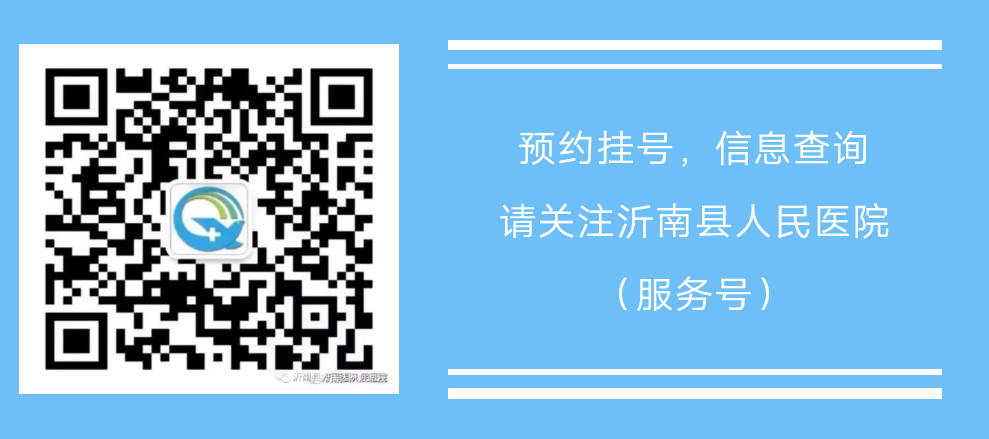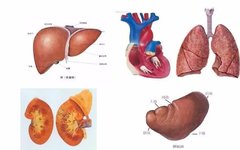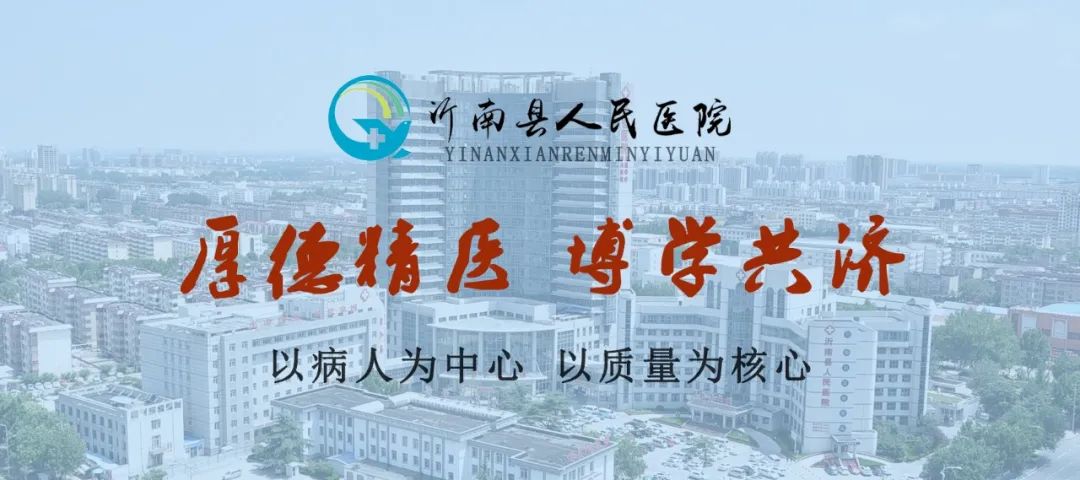
Nourishing the five organs is a comprehensive health maintenance method guided by the theory of Zangxiang in Traditional Chinese Medicine (TCM), focusing on the five organs to maintain stable and coordinated organ function.
TCM emphasizes the centrality of the five organs in health maintenance, where the ultimate goal of various health methods is to strengthen the five organs, balance Qi and blood, and thereby maintain the normal and coordinated functioning of the entire human life system centered around the five organs.
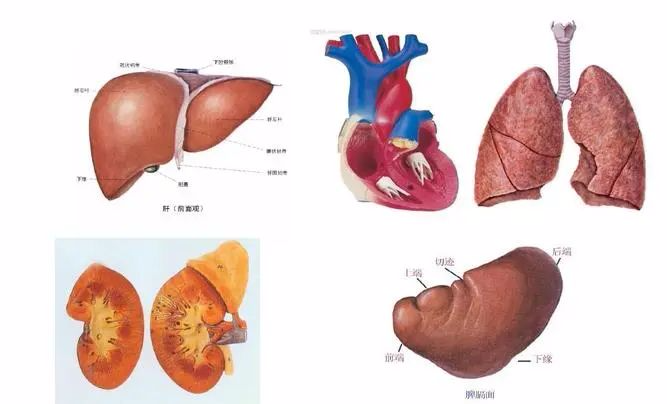
◇ Image source: Internet
01. Nourishing the Liver
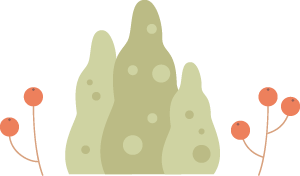
The liver is the lesser yang among the yin organs, embodying yin while utilizing yang. It is responsible for storing blood and regulating blood volume, and can adjust blood distribution according to the activity status of various organs in the body.
To nourish the liver, the primary focus is to align with the liver’s preference for smooth flow, maintaining its normal function of regulation, thereby ensuring the smooth flow of Qi, blood, body fluids, and emotional well-being.
1
Emotional Regulation Method
This mainly includes cultivating a positive and optimistic attitude towards life and regulating and controlling negative emotions. Subjectively, one should strive to maintain a positive, joyful, and tranquil mental state, keeping a calm mind while also avoiding anger and reducing anxiety to protect liver function.
2
Daily Maintenance Method
To care for the liver, one must nourish liver blood and ensure smooth liver Qi. It is important to maintain a regular lifestyle, going to bed early and rising early, sleeping before 11:00 PM; engaging in appropriate exercise, and regularly massaging liver acupoints such as Tai Chong (Taichong) and Gan Yu (Ganyu), which can be complemented by rubbing the sides of the body to soothe the liver and relieve depression.
3
Dietary Method
To nourish the liver, it is advisable to consume foods that are slightly sour and sweet, or foods that are green in color. For example, mung beans, which are green, can lower cholesterol, protect the liver, and help detoxify the liver. They can be cooked into mung bean porridge for consumption. It is best to avoid excessive sour and spicy foods and to choose blood-nourishing, Qi-moving, or liver-clearing items such as Ejiao (Donkey-hide Gelatin) and Sheng Mai Ya (Barley Sprouts).
02. Nourishing the Heart

The heart is a yang organ, characterized by its role in hosting yang Qi and disliking heat. The yang Qi of the heart not only maintains the physiological functions of the heart itself but also has a warming effect on the entire body, promoting blood circulation and sustaining life activities. The heart plays a commanding and coordinating role in the functional activities of all other organs.
1
Heart Spirit Maintenance Method
This involves maintaining the heart’s inherent clarity and tranquility, allowing it to exert its governing role. First, one should minimize desires and control cravings to nourish the heart spirit; second, reduce excessive thinking and analyze matters rationally to avoid unnecessary worries; finally, regulate emotions to maintain an optimistic, joyful, and peaceful mental state, resolving negative emotions.
2
Daily Maintenance Method
Exercise should be moderate; those with heart issues should avoid exercising in the early morning. It is important to balance work and rest, develop good living habits, and take short naps from 11:00 AM to 1:00 PM to replenish heart Qi; avoid smoking and limit alcohol; adjust clothing according to seasonal changes; elderly individuals with a history of hypertension or heart disease should avoid straining during bowel movements and not keep doors and windows closed for too long while bathing; acupoints such as Nei Guan (Neiguan) and Xin Yu (Xinyu) can be massaged to protect the heart.
3
Dietary Method
Individuals experiencing palpitations or chest pain should limit salt and salty foods and medications. Heart fire can easily become excessive, and lotus seed heart is an excellent remedy for clearing heart fire, which can be soaked in water as a tea or cooked in soup. It is important to nourish heart blood and spirit, using ingredients like longan meat and walnuts. Additionally, avoid long-term consumption of animal fats and focus on foods rich in high-quality proteins and trace elements.
03. Nourishing the Spleen

The spleen is the foundation of postnatal life and the source of Qi and blood transformation. As one of the five organs, the spleen is closely related to the stomach, which is one of the six fu organs. Only when the spleen and stomach function robustly can the body be nourished with sufficient Qi and blood, leading to health and longevity.
1
Harmonizing Stomach Qi Method
Diet should be moderate, with careful chewing and swallowing. Avoid excessive hunger or fullness, irregular eating habits, and preference for specific flavors. In cold weather, protect yang Qi, especially keeping the waist and abdomen warm. Avoid raw and cold foods, and consider using warming spices like ginger and pepper.
2
Daily Maintenance Method
Pay attention to preventing heat and humidity; maintain a calm and empty mental state, avoiding excessive thinking. During the long summer, consider the following points: drink beverages to prevent heat stroke before exercising, take sun protection measures; choose to exercise in the early morning or late afternoon; massage acupoints such as Pi Yu (Piyu) and Zu San Li (Zusanli).
3
Dietary Method
Regularly consume sweet and bitter foods while limiting sour foods and medications. Frequently eat items that strengthen the spleen and aid digestion, such as chicken inner gold (the inner lining of chicken gizzards) and hawthorn. When the spleen and stomach are weak, consider using ingredients that tonify Qi and strengthen the spleen, such as coix seed and lotus seeds. It is advisable to consume foods that dispel dampness, such as dried tangerine peel and winter melon.
04. Nourishing the Lungs

The lungs are positioned highest among the organs and govern the skin and hair, connecting to the nasal passages. However, the lung tissue is delicate and cannot withstand extreme cold or heat, making it susceptible to external pathogens. The lungs govern Qi, control respiration, and also regulate the water pathways in the body.
1
Maintaining Lung Qi Method
First, avoid external pathogens; in winter and spring, avoid cold pathogens; in spring and summer, avoid heat pathogens; in autumn, avoid dryness; second, speak less to nourish lung Qi; finally, maintain a worry-free state, distancing oneself from sorrowful emotions.
2
Daily Maintenance Method
Emphasize exercise, particularly aerobic activities such as Tai Chi and Wuqinxi (Five Animal Frolics); avoid wind and cold, especially keeping the back warm; ensure indoor air is clean and dry; when air pollution is high, wear a dust mask when going out.
3
Dietary Method
Consume more pungent and bitter foods, such as mint and ginger, while avoiding excessive raw and cold foods. Regularly nourish Qi and Yin, focusing on foods that moisten the lungs and relieve dryness. If experiencing lung heat with cough and phlegm, consider using Chuan Bei (Fritillaria) stewed with pear to moisten the lungs and resolve phlegm.
05. Nourishing the Kidneys

The kidneys govern the storage of essence, which can generate marrow, residing in the bones, and the bones rely on marrow for nourishment. Sufficient kidney essence leads to strong and healthy bones; if kidney essence is deficient, bones become weak, leading to an inability to stand for long periods. Teeth are considered “the surplus of bones”; if bones are undernourished, teeth may become loose or even fall out. Only with sufficient kidney essence and a balance of Yin and Yang can one achieve health and longevity.
1
Maintaining Kidney Essence Method
It is important to regulate sexual activity and consider consuming foods and herbs that tonify the kidneys and replenish essence, such as Shu Di Huang (Rehmannia) and Huang Jing (Polygonatum). Moxibustion and massage at acupoints such as Guan Yuan (Guanyuan), Shen Yu (Shenyu), and Yong Quan (Yongquan) can also be beneficial for kidney tonification.
2
Daily Maintenance Method
Focus on “nourishing and storing”; prioritize early sleep, engage in moderate exercise in the morning or evening, and maintain a good emotional state; avoid excessive strain on the lower back; do not sit directly on damp or cold ground; consider rubbing the ears, clenching teeth, and making sounds to stimulate the kidneys.
3
Dietary Method
Consume more naturally salty foods rather than excessive salt, such as kelp, soybeans, and nori; be cautious not to eat too many sweet foods, especially for those already experiencing symptoms of kidney deficiency such as lower back pain and tinnitus. Additionally, black foods are beneficial for the kidneys, so black sesame, black rice, and black beans can be included in the diet, either as soy milk or in soups.
For more stories about Traditional Chinese Medicine and herbs, please click the links below:
Traditional Chinese Medicine | The Story of Oracle Bones and Dragon Bones
Traditional Chinese Medicine | Did ancient China have CPR?
Traditional Chinese Medicine | Remedies for the flu? TCM has solutions
Traditional Chinese Medicine | To prevent and treat myopia, try pressing your ears
Traditional Chinese Medicine | No need to worry about constipation, the Fire Dragon Jar can help
Traditional Chinese Medicine | Techniques for children to combat viruses!
Traditional Chinese Medicine | Clever use of “small beans” to activate the body’s mechanisms
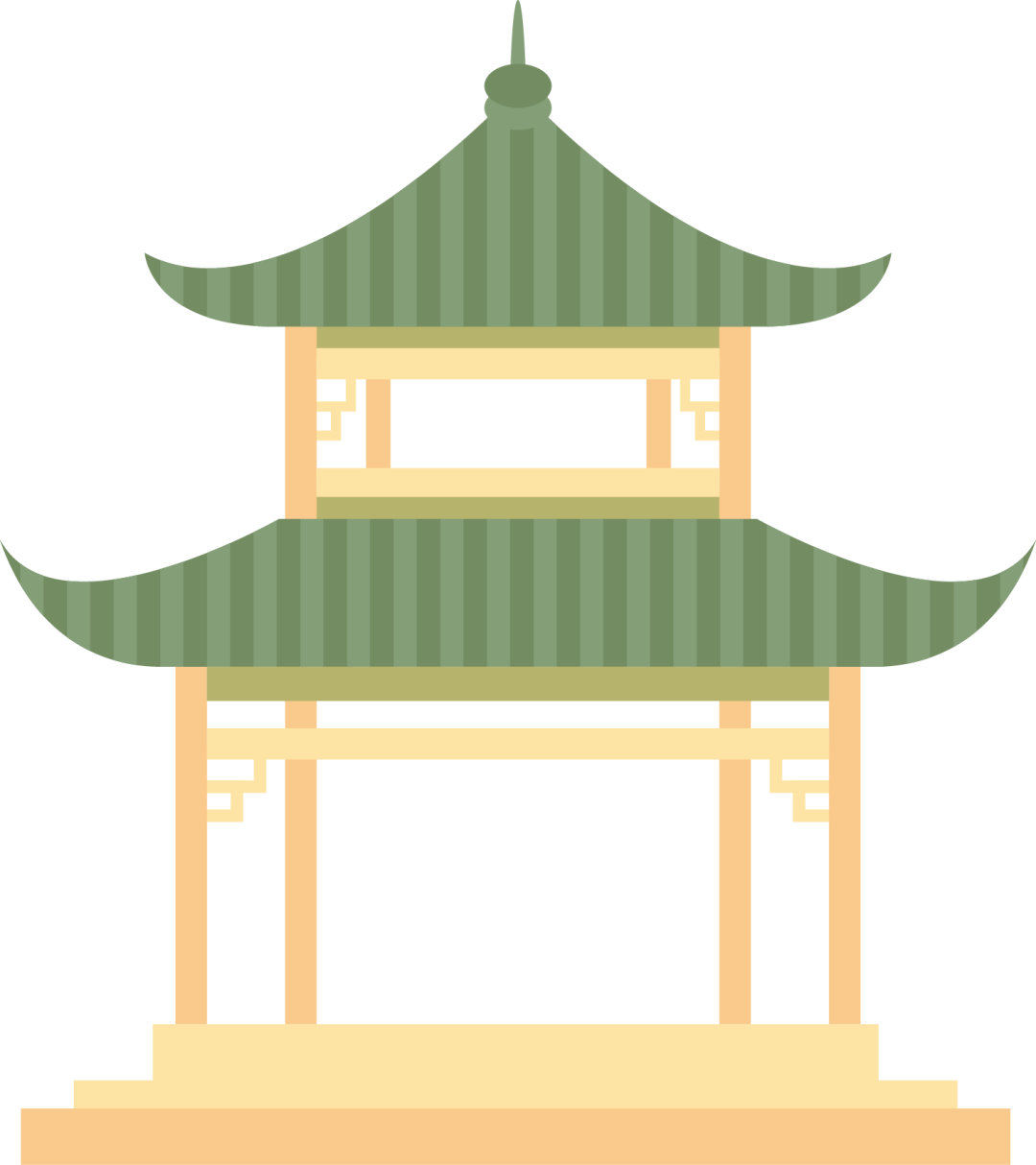
Source: National Administration of Traditional Chinese Medicine Government Website
Editor: Liu HanEditor-in-Chief: Gao Qinfeng
Reviewer: Du Yiming

